- +254 20 366 1229
- secd.ihd@aku.edu
Our Team
- Home Our Team
We are a growing team of professionals committed to the vision and ideals of AKU and passionate about our role in translating IHD’s mission into reality. Together we are making a meaningful investment in human development and laying foundations for the prosperity of tomorrow’s generation starting today. Our team brings on board expertise from development, academia, research, policy and administration making every day of our experiences exciting and rewarding.
-
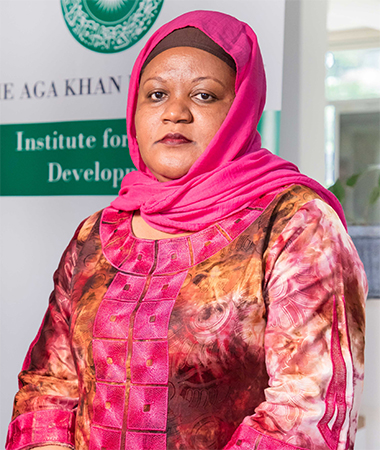 Prof Amina AbubakarDirector, Institute for Human Development
Prof Amina AbubakarDirector, Institute for Human Development
Prof Amina Abubakar
Director, Institute for Human Development
Amina Abubakar is a full Professor and Director for the Institute for Human Development, Aga Khan University (AKU). She is a Senior Research Scientist at the Kenya Medical Research Institute/Wellcome Trust Research Programme and Visiting Academic at the University of Oxford, Department of Psychiatry.
She is a trained Developmental Psychologist with more than 18 years’ research experience working in rural settings in Kenya within multidisciplinary teams. She is interested in both acquired and congenital brain disorders. Specifically, her research interests lie in a) quantifying the neurocognitive burden of early childhood diseases; b) developing culturally appropriate psychological measures for use in SSA and; c) identifying culturally appropriate intervention strategies for at-risk children in SSA. She has more than 18 years experience developing assessment tools and describing the neurocognitive and mental health outcomes for children exposed to multiple risk factors. The neurodevelopmental tools and measures that she has contributed to developing have been used in more than 25 low- and middle-income countries. Her expertise in tool development is widely acknowledge and she has taught seminars, workshops and summers schools on cross-cultural test adaptation and validation in several countries including Kenya, South Africa, Spain, and Indonesia.
She has (co)-authored more than 150 peer-reviewed journal articles and book chapters. She has been humbled to receive awards from various organization including the American Psychological Society and the Royal Society of UK in recognition for her work in Africa.
In 2016, she was awarded the highly prestigious MRC/DfiD African Research Leader Fellowship, to set up a programme of work on the impact of perinatal HIV infection on adolescent health and well-being. In 2016, she was awarded the Royal Society Pfizer Award in recognition of her pioneering psychological research in East Africa, and for the impact her work has had in the field of neurodevelopmental assessment. She has served on technical working groups, forums and consulted for various international organizations including the World Health Organization, National Academies of Sciences, Engineering and Medicine (USA), Firelight Foundation, Save the Children, Autism Speaks and Open Society. She has been actively involved in capacity building for African scientists and has supervised PhD students from Kenya, South Africa, Tanzania and Zambia.
-
 Margaret KabueInstitute Manager, Institute for Human Development
Margaret KabueInstitute Manager, Institute for Human Development
Margaret Kabue
Institute Manager, Institute for Human Development
Margaret Kabue is the Institute Manager at IHD. She holds a Bachelor’s degree in Sociology Linguistics, a Master of Arts in Project Planning and Management from the University of Nairobi. She previously worked as a Project Manager for Childhood Development in Marginalized Communities (CDMC) project at IHD. She has also worked with ActionAid, KANCO and Plan International in Programme management, capacity development and advocacy. Her current role involves assisting the Director IHD execute research and capacity building mandate for the institute. Her interests are in programme management, research, and advocacy in the area of Child and Women rights.
-
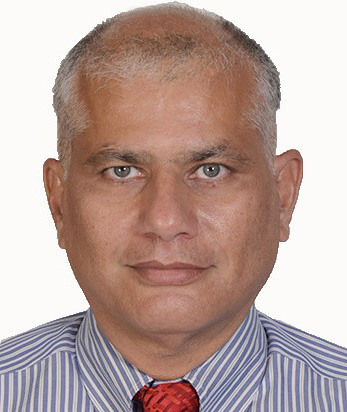 Dr Anil KhamisResearch Faculty & Lead Researcher
Dr Anil KhamisResearch Faculty & Lead Researcher
Dr Anil Khamis
Research Faculty & Lead Researcher
Anil Khamis, PhD holds cross-entity appointments in education, global health, and human development at the Aga Khan University where he has been since 2018. He also holds a faculty position with University College London Institute of Education where he has been since 2001.
He specialises in the education and international development with reference to the UN Sustainable Development Goals having worked in over 30 countries. His expertise includes marginalised and disenfranchised communities in hard to reach and conflict regions of the world.
-
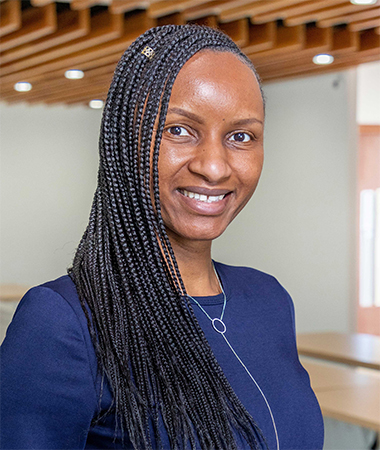 Joyce MaranguECD Hub Manager
Joyce MaranguECD Hub Manager
Joyce Marangu
ECD Hub Manager
Ms Marangu is the Manager for the ECD Workforce Hub hosted by the Institute for Human Development. She was previously a Project Coordinator for the Scaling Up Playful Parenting Project co-funded by UNICEF/LEGO Foundation and the Aga Khan Foundation USA, and has held other research positions in the Institute. Her research interests include: early childhood development, child health and nutrition, child poverty and social protection. Joyce holds a B.A in Social Work from the University of Nairobi, M.A in Development Studies from Ruhr University Bochum in Germany, and an M.A in Development Studies from the University of the Western Cape. She is currently pursuing a doctorate at Stellenbosch University. She is also an Africa Early Childhood Development Network Fellow.
-
 Daniel RabokGovernment Liaison Manager
Daniel RabokGovernment Liaison Manager
Daniel Rabok
Government Liaison Manager
Mr. Rabok is a government liaison manager at the institute. He holds a master’s degree in Early Childhood Studies and a bachelor’s degree in Early Childhood Education from Kenyatta University, as well as a Diploma in Project Management from the Kenya Institute of Management. He has experience in Early Childhood Development (ECD) research, policy analysis, community engagement and workforce development. His interest is in research and management of ECD programs with a special focus on identifying and advocating for an improved policy environment to guide delivery of quality and inclusive ECD services to children during their earliest years.
-
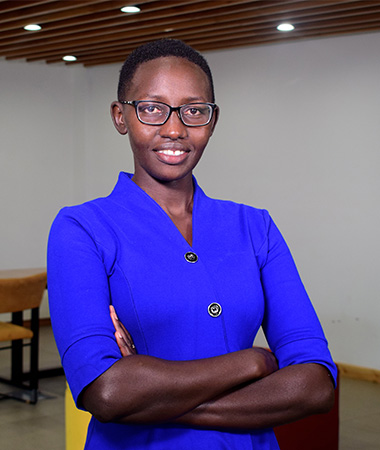 Esther ChongwoPhD fellow, Institute for Human Development
Esther ChongwoPhD fellow, Institute for Human Development
Esther Chongwo
PhD fellow, Institute for Human Development
Ms Chongwo is a PhD fellow at the institute. She has a background training in Nursing and Public Health from Kenyatta University, a postgraduate diploma in Health Research Methods from Pwani University, and a master’s degree in Public Health from the London School of Hygiene and Tropical Medicine. She is currently pursuing her doctorate studies at the Vrije Universiteit Amsterdam (Netherlands), where she seeks to understand the risks and resilience in children from arid and semi-arid regions of Kenya and Tanzania. Previously, she worked on a project aimed at developing measures of adolescent connectedness and character development in Kenya. Her interests are in early childhood development, mental health, and positive youth development.
-
 Beatrice KarimiProject Assistant
Beatrice KarimiProject Assistant
Beatrice Karimi
Project Assistant
Ms. Karimi is a project assistant at the institute. She is currently pursuing a master’s degree in Development Studies at the University of Nairobi and holds a bachelor’s degree in Development Studies with IT from Maseno University. Her interest lies in understanding the contribution of early child development initiatives to economic growth and development.
-
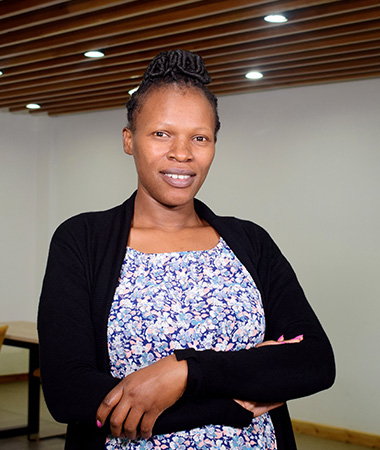 Susan NyamanyaECD Technical Assistant
Susan NyamanyaECD Technical Assistant
Susan Nyamanya
ECD Technical Assistant
Ms Nyamanya is an Early Childhood Development (ECD) Technical Assistant at the Institute for Human Development with over 10 years experience in managing and coordinating ECD projects. She holds a bachelor’s degree in Early Childhood Education from Kenyatta University and a higher Diploma in Project Management from the Kenya Institute of Management. She also has certification in Monitoring, Evaluation, Accountability and Learning (MEAL) from the Humanitarian Academy and Science of Early Child development (SECD) certification from the Aga Khan University. Prior to joining the institute, she worked for the Aga Khan Foundation. Her interests lie in advocacy, programme planning and management, monitoring and evaluation in the areas of gender and child development.
-
 Maureen OokoCommunications Coordinator
Maureen OokoCommunications Coordinator
Maureen Ooko
Communications Coordinator
Ms Ooko is the Communications Officer at the institute. She holds a Bachelor of Arts Degree in Communication Studies from the University of Nairobi and has worked in various multinational organisations where she has horned her communications skills. Her interests are in public relations and development communication.
-
 Esther PeterAdministrative Coordinator
Esther PeterAdministrative Coordinator
Esther Peter
Administrative Coordinator
Esther Peter is the Administrative & Communications Officer at the Institute for Human Development.
She has previously held positions at Syngenta AG as a Corporate Affairs Assistant‐ Africa and Middle East Region, and Independent Electoral and Boundaries Commission at the Public Relations office. Esther has a Master’s Degree in Development Communication and a BA in Public Relations from Daystar University, and has interests in the areas of Development Communication.
